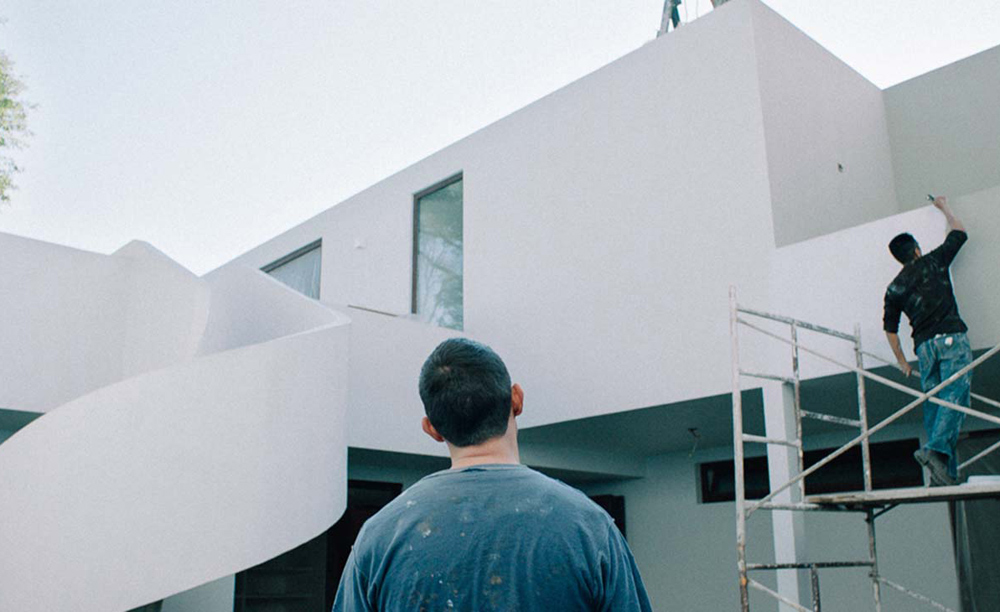In the introductory moments of “Workforce,” it could just be you have a better idea of the film’s ending than of its beginning, opening with a shock to the system for a construction crew building a house in Mexico. It’s best not to spoil how exactly writer/director David Zonana shakes things up mere seconds into his terrific debut feature, but the inciting incident perfectly encapsulates the pervasive sense of hopelessness amongst the working class that has to take everything in stride, even tragedy. On that score, it seems both the workers building a palatial new house for a largely unseen man of means and his emissary Tono, who deals with the crew, are on the same page, as neither spend much time acknowledging what happened for entirely different reasons. The workers want to keep their jobs and Tono wants to come out on schedule, but when one of the workers Francisco (Luis Alberti) feels he has never thing left to lose with the house well on its way to completion, he hops the gate late at night and finds a place he can stay rent-free that’s far bigger than the cramped, leaky apartment he currently resides in and begins to let the other workers in on his secret.
As you watch Francisco ease himself into the house’s newly installed jacuzzi, it’s understood that he doesn’t quite comprehend the hot water he’s getting into, though you do and while there’s a sense of inevitability about “Workforce,” it speaks to Zonana‘s narrative wileyness and impressive command that the drama still never feels predictable. With exquisite camerawork from Carolina Costa, who begins with evocative, stationary frames that begin to move once the characters begin to take on a feeling of agency, the film observes how the workers turn the house into a home, bringing in their families and dealing with the usual issues of cohabitation but also the understanding that they need to make individual sacrifices for the greater good to keep a roof over their head.
The threat of being kicked out may hang over the families like a guillotine, but the film’s most compelling intrigue comes from Francisco, constantly looking for ways to make the most out of a bad situation and succeeding more than he can imagine or even perhaps is healthy for someone of his age – still young and slightly irresponsible when he’s thrust into the position of having the welfare of nearly three dozen people on his slender shoulders. He may be considerate enough to find the money to bring a brand new TV into the house for the enjoyment of all, but being sensitive to specific needs of the members of this inadvertent co-op he’s set up proves far more difficult and Zonana captures the truth that even if the cops don’t come, there’s enough tension to bring it all down without the authorities getting involved. Then again, it’s the anxiety of not knowing whether they have a place to live that informs every flare-up, and while instability is something you see the families have become accustomed to when they rely on day labor for income, it’s how Zonana is able to capture the abstract power that uncertainty has over their lives that makes “Workforce” so potent, elegantly expressing the strength that can emerge from a little communal generosity and the weakness of a society that has no place for them.
“Workforce” will next screen at the San Sebastian Film Festival on September 22nd at 4 pm at Antiguo Berri 2 and 6:15 pm at Principe 7 and the London Film Festival.




